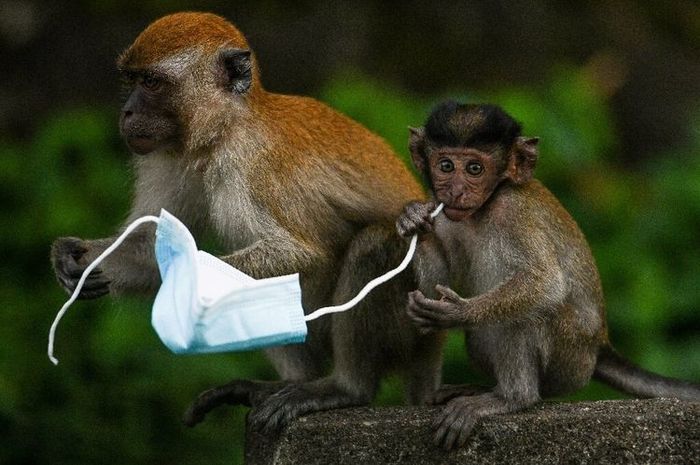–
A veterinarian in China has reportedly died from the Monkey-B virus.
–
GridHEALTH.id – Not yet over the corona virus pandemic (Covid-19), China was again made a commotion after a veterinarian was reported to have died of infection virus monkey-B.
The 53-year-old man is now referred to as the 22nd human victim in the world who died from the rare virus.
Reporting from The Sun (21/07/2021), the vet was infected virus Monkey-B after performing surgery on two monkeys that died in early March.
Shortly thereafter, the doctor, who had a swollen brain, was sick for weeks and was declared dead in May 2021.
According to reports, the vet started showing symptoms of nausea and vomiting a month later, followed by a fever with neurological symptoms that may include tingling.
“As a result, the patient visited doctors in several hospitals but eventually died on May 27,” according to the statement Center for Disease Control and Prevention (CDC).
The man has long worked at a specialist institute in primate breeding and experimental research in Beijing.
Two of his close contacts, a doctor and a nurse, were checked to see if they carried the virus as well but came back negative.
According to CDC China, virus Monkey-B, also known as herpes B virus, is transmitted through direct contact and exchange of body fluids between monkeys.
It is harmless to primates, but kills between 70 and 80% of infected humans.
Chinese health officials say the Monkey-B virus could pose a potential threat to workers such as veterinarians.
The man is the first recorded case of the Monkey-B virus in China.
Most cases of transmission of the Monkey-B virus have been recorded in North America, occurring in veterinarians or other occupations in close contact with animals.
Only 50 people have been documented to be infected with the Monkey-B virus in 88 years.
Twenty-one of those cases died, according to Health officials at the US CDC. The last recorded death was in 1997.
A researcher named Elizabeth Griffin, 22, died of the Monkey-B virus after bodily fluids from an infected monkey splashed into her eyes.
Most people become infected after being bitten or scratched by a monkey, or when tissue or fluid from a monkey comes into contact with damaged skin, such as a needle stick or cut.
But hundreds of bites and scratches occur each year in monkey facilities in the US, and people are rarely infected.
The CDC warns that if visiting a place where macaques are most commonly infected with the virus, visitors should keep their distance.
So far only one case of human-to-human infection has been reported.
Similar to the corona virus, the symptoms of Monkey-B virus are initially flu-like, which include fever and chills, muscle aches, fatigue, headaches.
Symptoms can vary from one day to three weeks.
The first signs, according to the US CDC, are fever and chills.
Then accompanied by muscle aches, fatigue, headaches, and the patient may experience small blisters on wounds or areas that have been in contact with monkeys.
Other symptoms may include shortness of breath, nausea and vomiting, abdominal pain, and hiccups.
Then as the disease progresses, the virus spreads and causes inflammation (swelling) of the brain and spinal cord.
In general, being infected with the Monkey-B virus can cause:
– Neurological and inflammatory symptoms (pain, numbness, itching) near the wound site
– Problems with muscle coordination
– Brain damage and severe damage to the nervous system up to
– Dead
Breathing problems and death can occur one to three weeks after symptoms appear.
Those infected with the Monkey-B virus may experience mild or no symptoms. However, there has not been much research on this subject.
Having Covid-19 Secret Info, This Chinese Senior Intel Official Reportedly Defected to the United States
#berantasstunting
#hadapicorona
#BijakGGL
PROMOTED CONTENT
– Featured Videos
Coronavirus Symptoms


